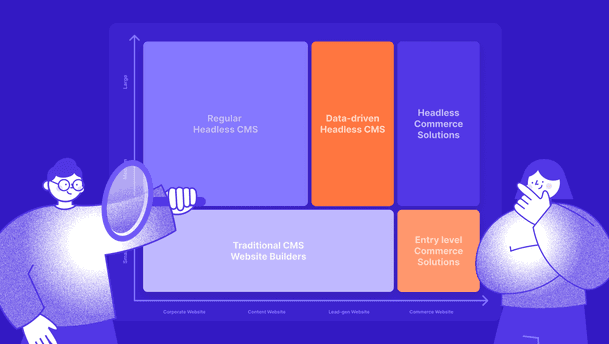Choosing the right CMS has become one of the most important and most complex decisions agencies face today.
With hundreds of platforms on the market, from traditional systems to headless and composable stacks, digital agencies are often left navigating chaos instead of clarity.
Every client expects a tailored solution. Every project has its own technical, operational, and strategic demands. And your team needs tools that support efficient delivery.
Yet the CMS market doesn’t make it easy to choose the right tool.
There’s no shortage of options, but there is a real shortage of guidance.
To help agencies face this challenge, we created the CMS market map to offer that missing guidance: a simple, strategic framework built specifically for digital agencies to make faster, smarter CMS decisions based on real project needs.
In this article, we’ll show you how it works and why it should be part of every agency’s toolkit.
Why most CMS evaluations fall short
For many agencies, choosing a CMS starts with familiar territory: feature comparisons, product demos, case studies, or maybe a recommendation from a developer or a client’s IT team.
But that approach skips the foundational question:
“What kind of project are we building — and what kind of CMS architecture best supports that?”
Without that context, agencies risk making decisions based on assumptions, vendor hype, or client preference. And that’s where the problems begin.
The truth is, CMS decisions aren’t purely technical. They’re shaped by project goals, team workflows, launch timelines, and integration needs. But too often, teams focus on the platform itself, not the project it needs to support.
Agencies need a way to evaluate CMS platforms that reflects how projects actually get scoped, resourced, and delivered. One that’s adaptable to different clients and timelines, but structured enough to drive confident, well-informed decisions. That’s exactly what the CMS Market Map is designed to do.









